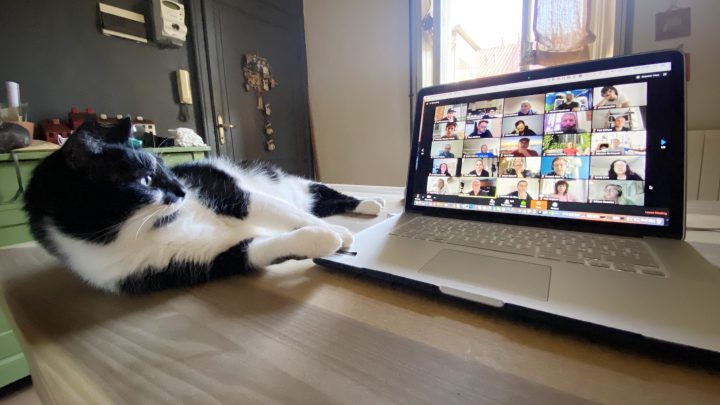
Could this meeting be an email?

In the first half of 2022, U.S. labor productivity — which measures how much goods and services workers produce per hour— dropped sharply. After an increase in productivity in 2021, workers today report high levels of burnout and dissatisfaction with their jobs.
Ellie Huizenga, a senior writer for the software company Zapier, wrote in Fast Company about a recent companywide productivity experiment in which the leadership canceled all meetings for a week.
Huizenga spoke about her experience that week with “Marketplace” host Kai Ryssdal. The following is an edited transcript of their conversation.
Kai Ryssdal: So, word comes down from on high that there are going to be no meetings for a week at Zapier, and you think what?
Ellie Huizenga: I was extremely excited, actually. When I heard from leadership that we were going to experiment with a week with no Zoom meetings, all I felt was excited anticipation.
Ryssdal: Did that mean that you could just go into your Outlook or your Google Calendar or whatever you use and just zap all your meetings?
Huizenga: Kind of. Yeah. Our leadership team sent a Slack message giving details about how the week was going to look for the entire company. Once that announcement came from leadership, Caitlin, my manager, reached out and let me know that she was canceling our one-on-one, canceling our team meeting for that week, and then she also encouraged me to look at the other meetings that were on my Google Calendar and confirm if we could do them [asynchronously] instead of on Zoom.
Ryssdal: Async — so, you just moved everything from five people getting together on Zoom to a Slack channel or whatever and just did everything that way?
Huizenga: Yeah, pretty much, yes.
Ryssdal: OK, so what did that mean for your flow? Because, you know, I like to have some blocks of uninterrupted time where I can just get stuff done. And if you have to go to some — apologies to my bosses — stupid meeting, your flow gets really broken up in a hurry, right? So what did it mean for you?
Huizenga: As a writer, big blocks of uninterrupted time are actually really critical to getting any good writing done. So, I was able to find more of those large blocks of time on my calendar. And then, you know, I usually spend between six to 10 hours in meetings over the course of a week, and, with that extra time that I gained back during my week, I also was able to work on some of my productivity systems because I didn’t have time for them in a normal week. It was great.
Ryssdal: How much do you think it matters for this experiment that Zapier is fully remote to begin with, right? So you guys have a workflow, a habit, a pattern, of doing a lot of stuff asynchronously. That must have helped.
Huizenga: Yeah, I think that’s actually a really good thing to point out. At Zapier, we are really intentional with our async communication, and I think that this week really let us all put that to the test. We just kind of put all of the ways that we communicate on Slack and in our different project management systems — we pushed that a little bit further. But we had kind of the basis of how we wanted to and how we knew we could communicate already kind of as a base for the week.
Ryssdal: Did you not miss it? Even on Zoom, did you not miss seeing people’s faces?
Huizenga: That’s a really good question. I think for one week, I was fine. I do think that there is a lot of value in face time, but I think that when you set aside that one week where you get to be really intentional about what you want to spend that extra time doing, there’s value in that too.
Ryssdal: So what’s the word from the bosses? Are you guys gonna do this again?
Huizenga: Yes, leadership wants to experiment with it again. There’s no set date, but I know that they’re looking to try [again] in 2023.
There’s a lot happening in the world. Through it all, Marketplace is here for you.
You rely on Marketplace to break down the world’s events and tell you how it affects you in a fact-based, approachable way. We rely on your financial support to keep making that possible.
Your donation today powers the independent journalism that you rely on. For just $5/month, you can help sustain Marketplace so we can keep reporting on the things that matter to you.

















